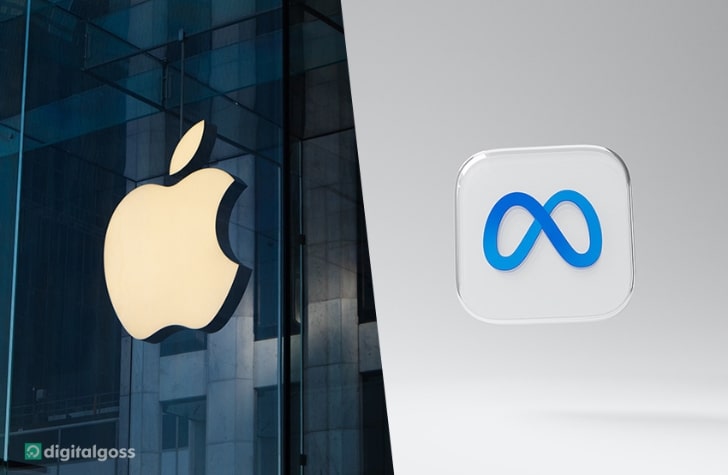Apple and Meta, two giants in the technology industry, are reportedly in discussions about integrating Meta’s generative AI models into Apple’s AI system for iPhones. This potential collaboration, as reported by the Wall Street Journal (WSJ), signals a significant shift in the AI landscape, bringing together companies that have historically been at odds.
Historically, Apple and Meta have had a strained relationship. Disputes over privacy policies, app store regulations, and other competitive practices have created a rift between the two companies. Apple CEO Tim Cook and Meta CEO Mark Zuckerberg have publicly criticized each other on numerous occasions, exacerbating tensions. However, the rapid advancement and proliferation of artificial intelligence technologies have opened up new opportunities for collaboration, even among rivals.
According to WSJ, Apple and Meta are discussing the integration of Meta’s AI models into Apple’s recently announced AI system, Apple Intelligence, which will be featured in iOS 18. This system is designed to enhance Apple’s suite of apps, including Siri, with advanced AI capabilities. The partnership would involve Meta’s AI contributing to this initiative, similar to Apple’s existing collaboration with OpenAI’s ChatGPT.
Apple has expressed its intent to incorporate technologies from various AI companies. Besides Meta, Apple is reportedly in talks with other AI startups like Anthropic and Perplexity to bring their generative AI technologies to Apple Intelligence. This strategy aligns with Apple’s aim to offer a diverse range of AI models, providing users with various options for enhancing their AI interactions.
For AI companies, partnering with Apple offers a significant advantage in terms of distribution. Apple’s vast user base and robust ecosystem can provide AI startups with unparalleled reach and exposure. While the financial details of these potential deals remain unclear, the integration of AI services into Apple’s products could create substantial revenue opportunities through premium subscriptions and other monetization strategies.
For users, the integration of multiple AI models into Apple Intelligence promises a more versatile and powerful AI experience. For instance, users could leverage Meta’s generative AI for specific tasks, while using other models like ChatGPT for different queries. This multiplicity of options can cater to diverse user needs, improving overall satisfaction and engagement with Apple’s products.
Apple’s focus on privacy remains a key aspect of these partnerships. The agreement with OpenAI’s ChatGPT, for example, stipulates that user data must not be collected and must be deleted after requests are processed. Similar privacy safeguards are expected to be part of any deal with Meta or other AI companies, ensuring that user trust is maintained.
Apple Intelligence, slated to launch later this year with iOS 18, iPadOS 18, and macOS Sequoia updates, will initially support US English and be available on the iPhone 15 Pro, iPad, and Mac models with the M1 chip or later. The gradual rollout of additional languages and regional support will expand its global reach, positioning Apple at the forefront of AI integration in consumer technology.
The potential collaboration between Apple and Meta highlights the fluid nature of partnerships in the tech industry, driven by the shared goal of advancing AI capabilities. This move could also intensify competition among other tech giants like Google and Microsoft, who are similarly investing heavily in AI technologies.

